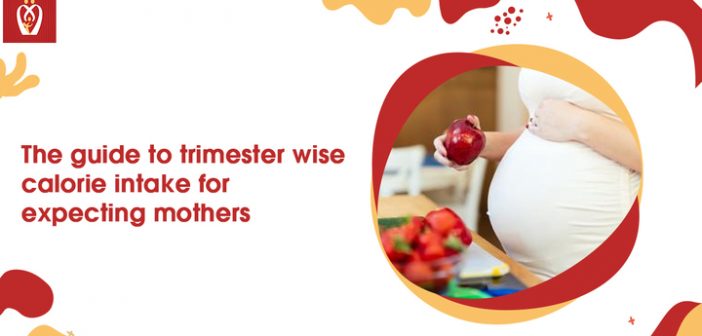Many people have the impression that pregnant women must eat for two. When it comes to pregnancy care, it does require a little increase in caloric consumption, but it does not necessitate adding an extra plate to accommodate the growing baby. Depending on one’s level of activity, age, and weight, an average individual can consume up to 2000 calories each day. The calorie intake of pregnant women must be somewhat increased, however, in order to make it through the term and deliver enough nutrition to the unborn child in their wombs.
Pregnancy care: calories during the first trimester
During your first trimester, you don’t have to drastically alter your diet; you can keep eating as you normally would. Although some women lose weight due to morning sickness, this is not always the case. In the first trimester, an extra 100 calories can help the body maintain a steady flow of nutrients. Because morning sickness can lead to dehydration, it’s important to drink plenty of fluids and maintain this level of hydration the entire time you’re expecting.
Pregnancy care: calories during the second trimester
You may find that your appetite has grown as you enter the second trimester due to your baby’s increasing nutritional requirements. This is the time when paying attention to what you eat on a daily basis is critical. During the second trimester, you should aim to consume an additional 300–350 calories each day, for a total of 2300–2500 calories per day.
Pregnancy care: calories during the third trimester
Third-trimester pregnant women will need an additional 300 calories to meet the nutritional needs of their growing kid. While heartburn is common in the third trimester, it is possible to eat normally. Smaller meals throughout the day can help alleviate this problem. Taking a glass of milk might also help ease heartburn symptoms.
How to know if you are eating enough
Although it is recommended that you consume the recommended number of calories when pregnant, this is not a must. What’s more crucial is that you feed your infant nutritious foods to aid in his or her growth. Pregnancy calorie calculators can help you keep track of how many calories you’re consuming, but remember that if you’re eating healthily and supplying your baby with all of the nutrients it needs, you’re on the right track. You should be able to confirm this with regular medical exams and ultrasounds.
You can also keep an eye on your weight and make sure that your pregnancy weight falls within the expected range based on your body type and daily habits. If you’re still unsure, you can always consult a GP.
If your GP has determined that you need to increase your calorie intake, he/she will provide you with instructions on how to do so.
The best ways to increase your calorie intake while pregnant
When it comes to pregnancy care, your diet should mostly consist of healthy options like whole-grain foods, fruits and vegetables, low-fat dairy, and lean meat. The occasional bag of chips or chocolate bar may be fine, but make sure to keep it in moderation.
Pregnant women can increase their calorie intake by eating these foods.
- A typical dish of cereal, skimmed milk, and a piece of fruit.
- Six to seven almonds in low-fat yoghurt.
- Cottage cheese and two slices of bread.
- Slices of bread with an egg and a piece of butter.
- One slice of mozzarella and an apple are the perfect combinations.
- On ten medium-sized crackers, put three dried apricots and a dollop of low-fat hummus.
How to maintain your calorie intake
You may gain a lot of weight during pregnancy if you succumb to the occasional craving. Pregnant women can ensure that they achieve their daily calorie intake by following these tips.
- Breakfast is the most important meal of the day, so do not skip it. If your morning sickness prevents you from eating a full breakfast, try some dry toast or crackers instead. The rest of your meal can be eaten in the course of the morning if you have anything brought to your bed prior to waking up.
- The combination of regular exercise, proper water consumption, and a diet rich in high-fibre foods will help you regulate your hunger pangs.
- Include a variety of colourful fruits and vegetables in your daily diet. Consuming plenty of fiber-rich fruits and vegetables can help lower blood pressure and prevent illnesses like preeclampsia.
- Make sure you have easy access to nutritious foods. When you’re starving, it’s much easier to reach for a low-fat yoghurt, fruit bowl, smoothie, or other healthy option like these.
- Each meal should include a small amount of protein, such as lean meat. If you do this, your meals will be more evenly distributed, and you will feel fuller for longer.
There are a lot of misconceptions and realities associated with being pregnant. You’ll come across many people, including family members, friends, acquaintances, and even neighbours, who will be more than happy to share their wisdom with you. A few of the suggestions might be helpful, but some may cause confusion. Always consult your midwife or GP in case of doubt.




